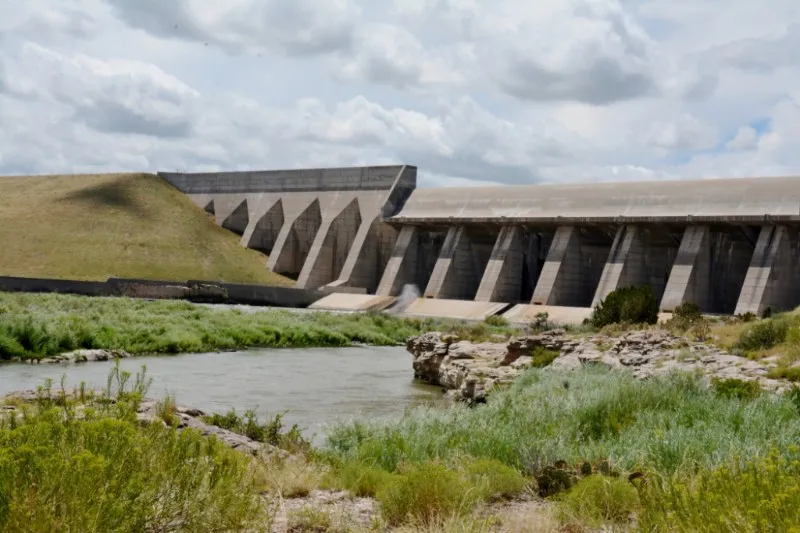
Daily Audio Newscast Afternoon Update - June 26, 2025
© INDU BACHKHETI - iStock-1336427297
News from around the nation.
Hegseth says US strikes on Iran were 'historically successful' after ayatollah downplays impact; WI communities grapple to make up for fresh food grant cuts; GA advocates demand transparency in power rate case; Ohio town invites public to final redistricting meeting ahead of new ward map.
Transcript
The Public News Service Thursday afternoon update.
I'm Mike Clifford.
Defense Secretary Pete Hegseth calls U.S. strikes on Iranian nuclear sites last weekend historically successful.
Speaking at a Pentagon news conference, Hegseth cited various assessments, including from the CIA and the U.N.'s nuclear watchdog.
That from the BBC.
The report Hegseth also attacked the media after a leaked intelligence report earlier this week suggested the strike's impact may have been limited.
The update comes after Iran's Supreme Leader said the U.S. failed to achieve anything significant with the nuclear strikes.
Next to Wisconsin, where communities are grappling with how to make up for cuts to fresh food grants that were helping support local farmers and providing healthy foods to those most in need.
The Wisconsin Local Food Purchase Assistance Program helped provide locally grown products to food pantries across the state.
Rufus Hockey owns an organic family farm in rural Viola.
He says this was a major shift in how food pantries were able to prepare and distribute nutritious foods while providing direct economic benefit to small farms.
It's hard to describe how significant it is.
Even if it's just $20,000 from my farm, I still spend that $20,000 in Lafarge and Viola and these small areas.
You just can't say how important it is.
Every single penny is important out here.
Viola is located in Richland County, which is one of the poorest in Wisconsin.
This year, the program planned to focus more on improving these food deserts, but the Trump administration cut funding for the program in March.
I'm Judith Ruiz Branch Reporting.
This story with original reporting by Olivia Herkind for the Wisconsin Independent.
And environmental advocacy groups are sounding the alarm over a recent agreement between Georgia Power and the Georgia Public Service Commission.
The deal would freeze base electricity rates for three years, but groups such as the Sierra Club, Southern Alliance for Clean Energy, and the Natural Resources Defense Council say the process skipped the usual six-month review.
That means less time for public input.
Lexi Doherty with the Sierra Club says the lack of transparency is one of their biggest concerns.
They're basically asking us to trust them and aren't really providing a lot of information past that original settlement filing.
And there's a lot more that we would like to know about how they came to the numbers they came to.
Shantia Hudson reporting.
And in Ohio, Nelsonville residents have another chance to shape their city's political map.
A final town hall next Monday invites the public to weigh in before a new city council ward map is finalized.
Debbie Schmieding is with the League of Women Voters.
It's a real turning point for the city of Nelsonville.
We're excited to help and we're excited to engage citizens for this part of the process, which is of course just a small piece of the overall governance.
But it's a good way to get in on the ground floor.
The League of Athens County in Ohio will host the fourth and final town hall Monday at the Nelson Public Library.
This is Public News Service.
Next to Mississippi, where community leaders are pushing back against water rates, increases proposed to pay off old infrastructure debt, arguing Jackson residents should not foot the bill for decades of systemic failures.
Brooke Floyd directs programs at the Jackson-based People's Advocacy Institute.
She says the city's water problems trace back to the 1960s.
She recalls the experience of her grandmother.
The five-gallon big jugs, they were delivered to her every two weeks because she did not drink the water directly out of the faucet.
So this is a problem that Jacksonians have been dealing with for decades.
This is an age-old problem.
You know, it just came to a head.
The current crisis peaked in August 2022 when heavy rains collapsed the system, leaving residents without water for weeks.
I'm Tramell Gomes.
Meantime, disabled New Yorkers could lose access to vital services because of proposed federal Medicaid cuts.
The Congressional Budget Reconciliation Bill calls for around $800 billion in cuts to the program over a decade.
These could boot more than 1.5 million New Yorkers off the program.
But Jeff Peters with the Center for Independence of the Disabled in New York says people with disabilities could face greater impacts.
People can work because they have Medicaid.
People can get to work because they have Medicaid.
People can stay in good health because they have Medicaid.
Some people won't be able to receive the home care they need.
Some people will have to switch to different services.
He adds it's not easy for some people to switch to a new provider because of the trust they have with providers.
Other concerns are how these cuts could reduce a person's quality of life or ability to live independently.
Although the Senate is set to vote on the bill soon, it's not what people want.
Polls show 71 percent of voters want Congress to guarantee health care coverage for low-income people with Medicaid.
I'm Edwin J. Vieira.
Finally, potential cuts to alternative energy tax incentives could hobble green energy distribution in rural parts of Alaska.
Alaska's topography and extreme climate make getting electricity to Alaska's rural bush communities extremely challenging.
Chase Christie with Alaska Solar says four projects created by the Chugach Electric Association took a different approach to getting a lot of power to people in rural areas.
It's a lot of power, but I think even more significantly, it is extremely rapidly deployable.
Renewables and solar in particular are the most rapidly deployable ways to get kilowatt hours into the grid.
The tax breaks in the Biden-era Inflation Reduction Act were critical to making the Chugach projects a reality.
And Christie says if the incentives disappear, so could a good amount of investment in rural Alaska's green energy distribution sector.
Those cuts could fall squarely on rural power cooperative and municipal utilities, which service up to 90 percent of Alaska's residents.
I'm Mark Moran.
The IRA also helped power co-ops in the lower 48 states to modernize their power grids and boosted investments in clean energy.
This is Mike Clifford for Public News Service, member and listener supported.
Find our trust indicators at publicnewsservice.org.

















